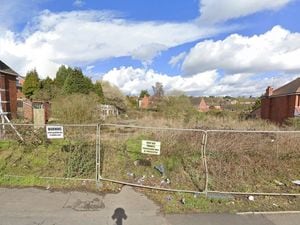Councils to return to physical meetings
Staffordshire County Council will move from its Stafford town centre chamber to a church to host a face to face session next month as local authorities look to return to physical meetings once more.

Rules requiring councils to meet physically were relaxed by the Government in April last year to enable business to be carried out remotely during the national lockdown.
After lockdown measures were relaxed in the summer some authorities, including Newcastle Borough and Staffordshire County councils, returned briefly to socially-distanced sessions in rooms or held “hybrid” meetings, with some members in the chamber and others accessing proceedings online, before restrictions on gatherings were tightened again in the autumn.
But the legislation that gave councils the ability to hold meetings online expires in May and is not set to be renewed by the Government. Instead councils are being encouraged to return to physical meeting rooms while following Covid safety guidance.
Next month Staffordshire County Council will hold its annual meeting – a session local authorities are legally required to hold each year – in Rising Brook Community Church instead of the County Buildings chamber used in pre-pandemic times.
The authority said the new venue is large enough to accommodate all 62 councillors while allowing social distancing. The May 20 meeting, which takes place two weeks after county council elections, will be webcast online too so that members of the public can follow proceedings remotely.
Many Staffordshire councils responded quickly to the move to online meetings last year, with staff and elected members being trained to use Microsoft Teams and Zoom. Members of the public were also able to watch the action without leaving their homes – and the proceedings at a particularly fraught Handforth Parish Council meeting in Cheshire even went viral.
John Henderson, Staffordshire County Council’s chief executive, said: “The Covid-19 pandemic has presented us all with huge challenges but by using the latest smart technology, we’ve been able to continue with vital council business, whilst also allowing for social distancing.
“County councillors provide the bridge between the local community and the council and it’s really important that decisions taken are transparent and that the council is held to account. This was particularly important during the pandemic, when we saw the council having to respond, react and make decisions much more quickly in an ever-changing situation.
“As a county council, we took the decision a number of years ago to invest in and make better use of new technologies and remote working. So when the pandemic hit, we were in a strong position to be able to quickly adapt to the new way of working.
“As restrictions start to ease, we will be looking to gradually return to more face-to-face meetings but our priority will be to ensure that everyone is kept safe. We do work closely with the voluntary sector and it’s great that we can call upon community organisations such as Rising Brook to help ensure we can continue to serve the people of Staffordshire and keep the wheels of democracy turning.”
Stafford Borough Council spokesman Will Conaghan said: “We will continue to monitor the national guidance on conducting council meetings safely. The safety of the public, our employees and councillors is our priority while ensuring the proper democratic process continues.”
Not everyone is eager to go back to face to face meetings next month however.
Speaking at a Cannock Chase Council meeting last month, leader George Adamson said concerns had been raised about the safety of returning to council chambers in May. “Hopefully the Government will do something about that”, he added.
But just days later it was announced by the Government that it would not be bringing forward emergency legislation to allow councils to continue holding remote meetings beyond May 7.
A letter to council leaders from MP Luke Hall, Minister of State for Regional Growth and Local Government, said: “While local authorities have been able to hold meetings in person at any time during the pandemic with appropriate measures in place, the successful rollout of the vaccine and the reduction in cases of Covid-19 should result in a significant reduction in risk for local authority members meeting in person from May 7, as reflected in the Government’s plan to ease Covid-19 restrictions over the coming months.
“I recognise there may be concerns about holding face-to-face meetings. Ultimately it is for local authorities to apply the Covid-19 guidance to ensure meetings take place safely, but we have updated our guidance on the safe use of council buildings to highlight ways in which you can, if necessary, minimise the risk of face-to-face meetings, and we will work with sector representative bodies to ensure that local authorities understand the guidance and are aware of the full range of options available to them.
“If your council is concerned about holding physical meetings you may want to consider resuming these after 17 May, at which point it is anticipated that a much greater range of indoor activity can resume in line with the Roadmap, such as allowing up to 1,000 people to attend performances or sporting events in indoor venues, or up to half-capacity (whichever is lower).”
Councils are being encouraged to continue providing remote access to meetings for members of the public until at least June 21 however. Local authorities have a legal obligation to ensure the public can access most meetings, with the exception of discussion of items that are of a confidential nature.
Councillor James Jamieson, chairman of the Local Government Association, described the decision as “extremely disappointing”.
He added: “The case is clear for the ability for councils to continue to be able to hold meetings flexibly. We urge the Government to reverse this decision and not force councils to have to hold Covid-19 secure face-to-face council meetings until all restrictions are lifted.
“Holding face to face council meetings, with supporting staff, could easily involve up to 200 people in one room even before adding in members of the public and reporters. This is likely to be a significant challenge with councils, for example, having to source larger venues in order to be able to host meetings with social distancing measures in place, such as full council meetings which will need to be held following the May local elections.
“This also risks damaging the gains seen in public participation in remote council meetings during the pandemic and our vital local democratic process.”





